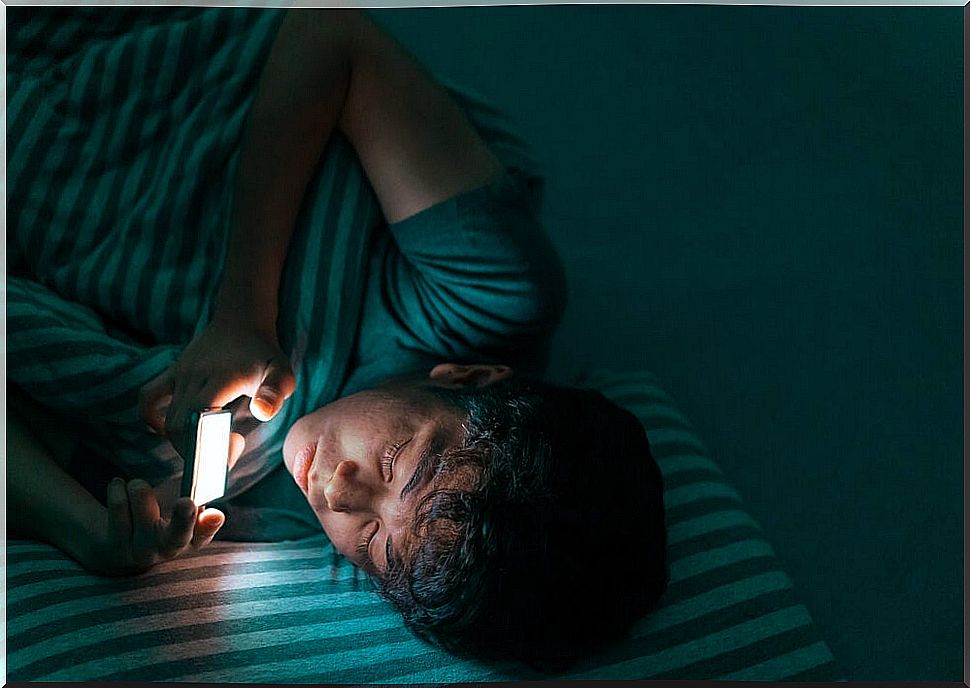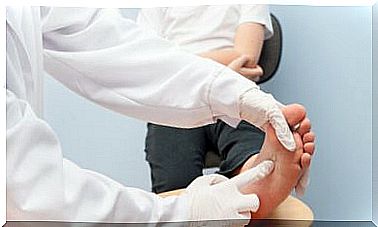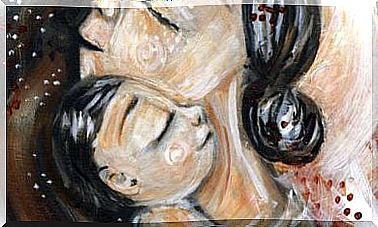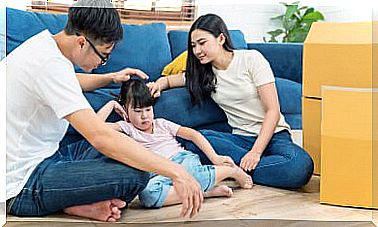Insomnia In Adolescents

There is no doubt that between the ages of 13 and 16, many changes occur on a physical, hormonal and mental level. And although it is believed that it is part of the typical “rebellions” of age, the truth is that insomnia in adolescents has more to do with something biological. Find out more below.
The sleep cycle in adolescents
Before talking about insomnia in adolescents, it is necessary to know a little about what their sleep cycle is like. In theory, they should sleep about eight hours straight each night; however, they do not meet this recommendation. And it is not with bad intention!
The biological clock and circadian rhythms (which are responsible for sleep and wakefulness) at this stage are revolutionized, as are hormones. That is why they may stay up all night or spend a whole weekend sleeping.
Daily obligations such as school, club or English classes also mean that they cannot sleep all they need and then they look like zombies all day. Impossible for them to pay attention in class, perform in sports, or study at home.
Causes of Insomnia in Teens
It is not known for sure why adolescents do not sleep as they should, but we can affirm that there are certain factors that can make them more prone to insomnia. First we have genetics. If the parents have trouble falling asleep, the child is likely to suffer too. This does not always happen but it must be taken into account.
It is also common that stress, poor diet, family pressures or even a little organization of schedules lead to the young person suffering from insomnia. That is why it is said that it is essential to comply with the hours allocated to rest from an early age.
Third includes hyperarousal, both physical and emotional. Many times this excitement or acceleration is caused by the use of video games, by watching action movies or by spending many hours looking at the mobile screen (with videos, social networks, games, series, etc).

There are also other causes of insomnia in adolescents. For example, some health problems such as: asthma, headache, rhinitis, allergy; anxiety before an exam, a trip, a move; depression from bad grades, an impossible love, problems with his friends; or the ingestion of stimulants before sleeping like coffee or soft drinks.
Believe it or not, insomnia in teens can also be caused by room temperature. When the room is not well acclimatized, there is too much light or the noises do not allow sleeping or, even, by practicing sports after sunset, since it reactivates the organism.
Insomnia symptoms in teens
Sleeping little is not always synonymous with insomnia. That’s the first thing you should know and don’t worry if your child stays up late or doesn’t get up until noon on Saturday. You have to pay more attention if this becomes a habit.
As parents we must be attentive to certain changes in their behavior and physical appearance, beyond the fact that at this stage it seems that every day we have a different child. Some signs that can alert you to insomnia in adolescents are:
1. Fatigue
It is not that he wants to sleep, it is that he seems listless 24 hours a day, even after a long nap or after having slept long hours on the weekend. Maybe you talk to him and he falls asleep at the table or while watching a movie.
2. Trouble concentrating
For some people, insomnia leads to constant alertness, but that doesn’t mean you can pay attention to what’s going on around you. Often, teens who do not sleep well have trouble concentrating at school or to fulfill orders and tasks.

3. Irritability
We know that adolescence is a stage where mood swings are the order of the day, but if we add insomnia to that, it will be a battle every time we want to talk to them or ask them to do something.
How to help a teenager with insomnia? Avoid using electronic devices two hours before bedtime, offer him a light dinner, make sure the room is at the right temperature, no light and no noise, and allow him to take naps after lunch. If the problem persists, see a doctor.
In conclusion
While it is normal that episodes of insomnia are sometimes experienced with a specific concern – such as a school evaluation – insomnia in adolescents should not be overlooked when it becomes common. Even if the young person does not complain, it is important to take him to the doctor if we see that he is not feeling well.
Remember that it is not advisable to resort to medication or natural remedies without first consulting with your doctor. The best thing is to review your lifestyle and follow the instructions given by the professional.










